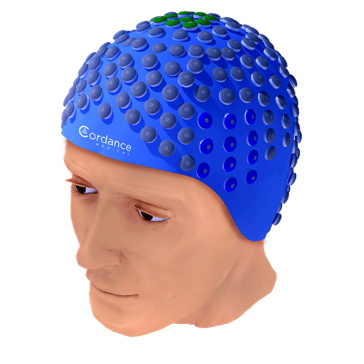

Decoding the legal framework for faster time-to-market.

Decoding the legal framework for faster time-to-market.

Class 1 recalls are at a 15-year high. To reduce the number of recalls and nonconformances, medtech manufacturers need quality management and traceability processes that go beyond documenting and tracking changes to effectively connect people, processes and data.

“We’re excited to have Naomi in this role. With her FDA experience, her visionary approach will pave the way for success, ensuring that businesses not only meet the FDA’s stringent requirements but also thrive in an environment where cybersecurity is a fundamental business value.”

Patient adherence is critical to maximizing the benefits of medical wearables. In this article, we look at the key challenges to patient adherence in clinical trials and healthcare settings, and how device developers, researchers and providers can collaborate to harness the full benefits of wearables.

Stefano Vicenzetto, Design Systems Engineer at Flex, shares his insights on how Circular Economy principles can be applied within the MedTech industry to reduce environmental impact by shifting away from the linear take, make and waste approach.

The NeuroAccess technology employs focused ultrasound in combination with microbubbles to open the blood-brain barrier in a safe, temporary and noninvasive manner.

In addition to addressing cybersecurity risk management during the design and development of medical devices, the standard also contains clear guidance related to postmarket monitoring of device vulnerabilities, security measures such as patching, and the use of a software bill of materials.

As with most industries experiencing steady growth, the medtech market faces several challenges, including supply chain issues, price inflation on materials and energy, labor shortages and increasing regulations. Adopting cloud-based digital solutions can help address these challenges. For companies investigating new solutions, the State of Manufacturing Technology survey can serve as a valuable benchmarking tool.

On October 30, President Biden issued an Executive Order establishing new standards for artificial intelligence (AI). The order focuses on safety and security, privacy protections, advancement of equity and civil rights, promotion of innovation and competition and advancing American leadership in AI.

Timely firmware updates are only one part of the hardware-related security equation. Whether it’s a hematology analyzer, CT scanner or any other networked medical device, the ability to withstand as well as recover from a malicious attack begins with the contract manufacturer that builds the embedded system. Here are five questions to ask your hardware integrator to be sure that your devices are equipped with maximum protection both before and after delivery.